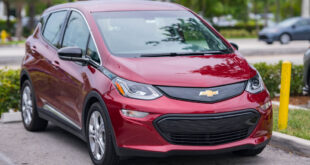Electric Car Incentives USA: Savings and Benefits The shift to electric vehicles (EVs) is accelerating rapidly in the United States, with governments and automakers encouraging consumers to embrace greener transportation. One of the most effective motivators is the availability of electric car incentives in the USA. These programs are designed to reduce the upfront costs of EVs, making them more accessible to the average consumer. In this guide, we’ll dive deep into the types of incentives available, how they work, and how you can take full advantage of them.
What Are Electric Car Incentives?
Electric car incentives are financial benefits or perks provided by federal, state, or local governments to encourage the adoption of EVs. These incentives may include tax credits, rebates, reduced registration fees, free access to HOV lanes, and more. The goal is to offset the higher initial costs of electric cars compared to traditional gasoline vehicles.
Federal Incentives for Electric Cars in the USA
1. Federal EV Tax Credit
- The federal government offers a tax credit of up to $7,500 for qualifying electric vehicles.
- Eligibility depends on:
- The size of the vehicle battery.
- Whether the manufacturer has hit the 200,000 EV sales cap.
- Meeting the “Made in America” battery sourcing requirements introduced in 2023.
- How it works:
- The tax credit is non-refundable, meaning it reduces your federal tax liability but won’t result in a refund if your tax bill is less than the credit amount.
State-Level Incentives for EVs
Many states complement federal programs with their own incentives:
2. California Clean Vehicle Rebate Program (CVRP)
- Offers up to $7,500 in rebates for eligible EVs and plug-in hybrids.
- Income restrictions apply.
3. New York Drive Clean Rebate
- Up to $2,000 for eligible vehicles.
- Available at the point of sale, making it easier for consumers.
4. Colorado EV Tax Credit
- Offers up to $5,000 for new EVs and $2,500 for used ones.
- Fully refundable, meaning you can receive the entire amount even if your tax liability is lower.
Additional Local Benefits for EV Owners
5. HOV Lane Access
- Many states allow EV owners to use high-occupancy vehicle lanes regardless of the number of passengers.
6. Reduced Registration Fees
- Some states, like Illinois, offer discounts on vehicle registration for EV owners.
7. Free Public Charging
- Cities like Austin, Texas, provide free or discounted public charging for EV owners.
Tips to Maximize Your Electric Car Incentives
- Research Eligibility: Understand the specific requirements for both federal and state-level incentives before purchasing.
- Combine Incentives: Many programs can be stacked, such as federal tax credits with state rebates.
- Time Your Purchase: Some incentives are time-sensitive, so check expiration dates.
- Leverage Manufacturer Deals: Automakers often provide additional rebates or financing options for EV buyers.
- Track Local Programs: Stay informed about city or utility-specific programs, like charging infrastructure subsidies.
- Consult a Tax Professional: Maximize tax credits with professional advice.
- Buy or Lease Strategically: Some incentives apply differently to leases and purchases.
- Monitor EV Sales Caps: Federal credits phase out after manufacturers sell 200,000 units.
- Check for Used EV Incentives: Certain states now offer rebates for pre-owned EVs.
- Utilize Employer Programs: Some companies provide incentives for employees who switch to EVs.
FAQs About Electric Car Incentives in the USA
- What is the federal tax credit for EVs?
The federal tax credit is up to $7,500 for qualifying EVs, based on battery size and other criteria. - Can I claim both federal and state incentives?
Yes, most state programs can be combined with federal credits. - Do tax credits apply to used EVs?
Federal credits for used EVs were introduced in 2023, offering up to $4,000. - Are leased EVs eligible for incentives?
Yes, but the credit usually goes to the leasing company, which may pass the savings to you. - Do incentives apply to plug-in hybrids?
Yes, plug-in hybrids often qualify for both federal and state incentives. - Are there income limits for federal incentives?
Starting in 2024, some income restrictions apply to federal EV tax credits. - What happens if I sell my EV early?
Selling the car early may disqualify you from state rebates requiring a minimum ownership period. - Do all EVs qualify for incentives?
No, only vehicles meeting specific criteria (e.g., battery size, price cap) qualify. - Can businesses benefit from EV incentives?
Yes, businesses can claim credits for purchasing electric fleet vehicles. - How do I apply for incentives?
Federal incentives are claimed when filing taxes; state rebates often require separate applications.
Conclusion
Electric car incentives in the USA provide significant savings, making EVs a viable and attractive option for many consumers. By combining federal, state, and local benefits, you can significantly reduce the overall cost of your electric vehicle, offsetting its initial price premium.
As the nation continues to prioritize sustainability, these programs will likely expand, bringing more opportunities for consumers to contribute to a greener future. Now is the perfect time to research your options and start your journey toward driving electric!
 oto car insurance used car repair
oto car insurance used car repair
